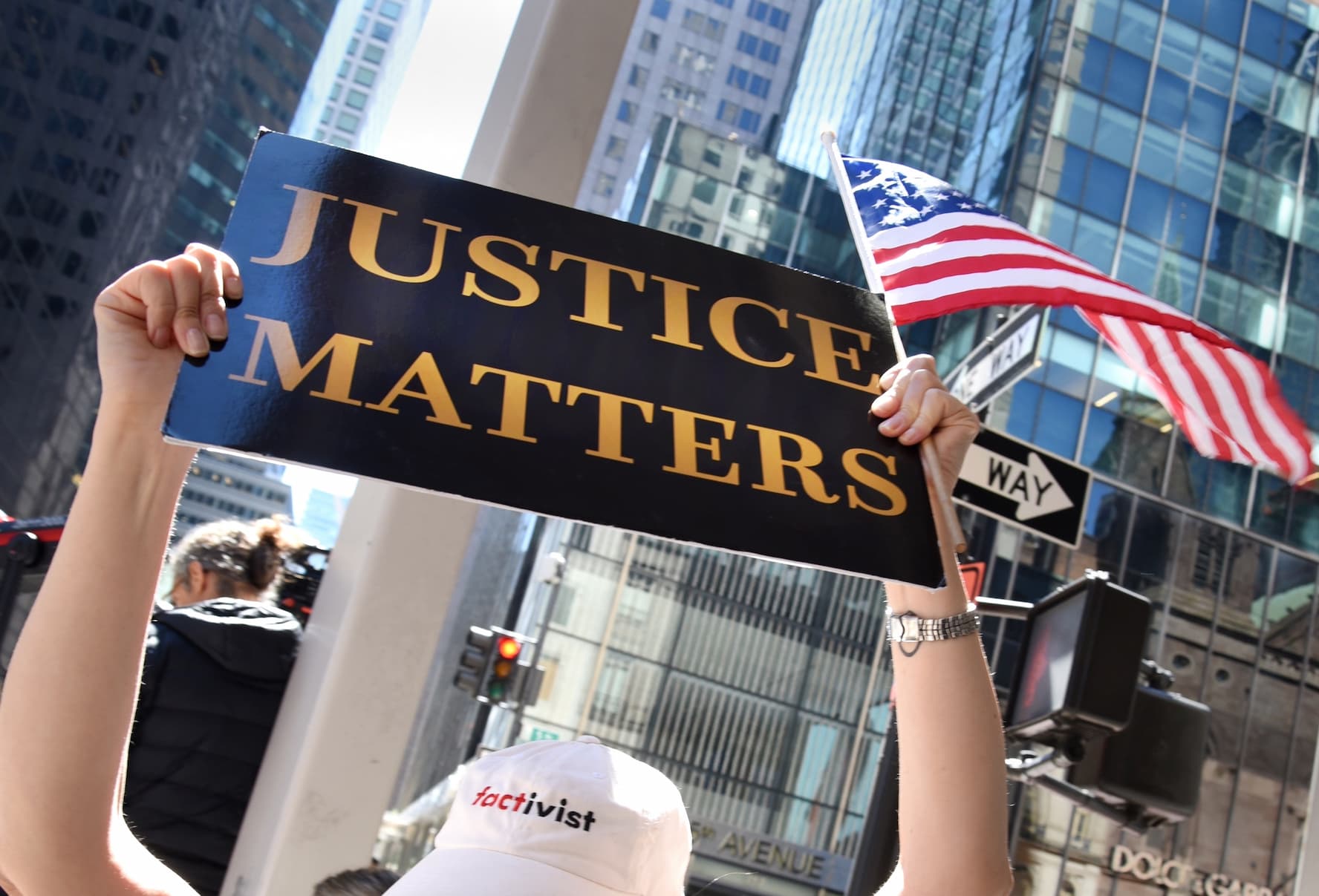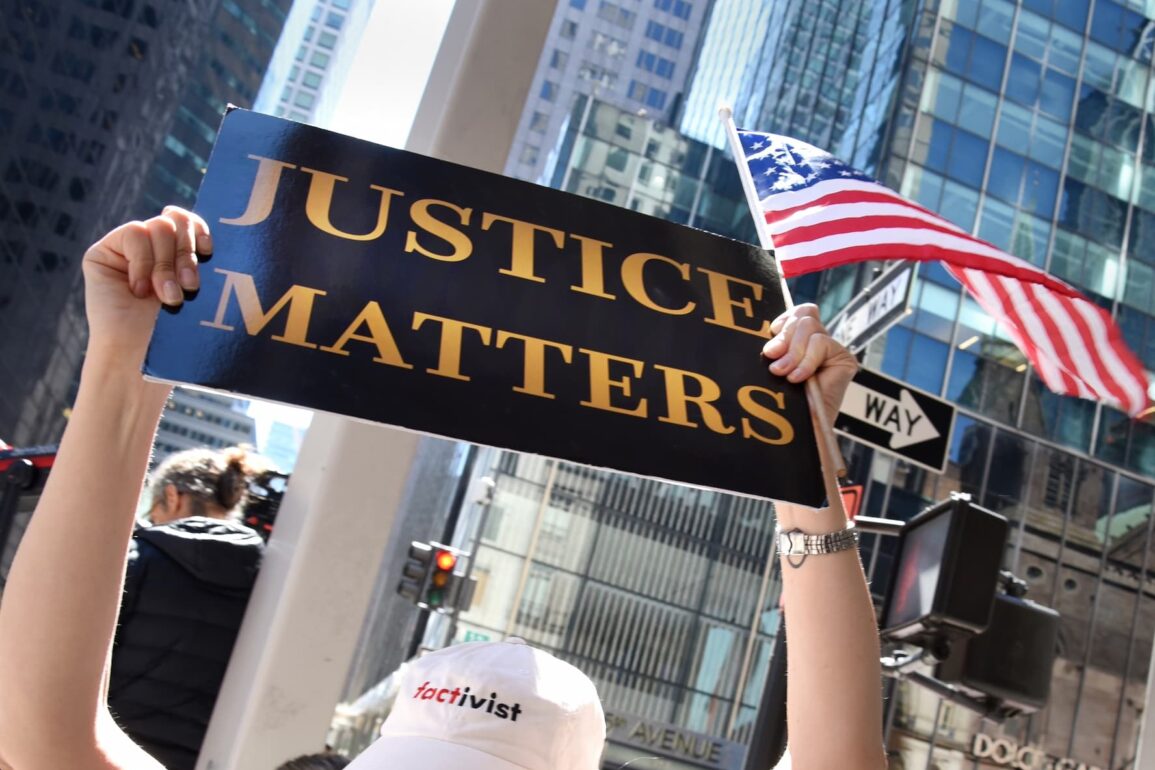
For the first time in the nation’s history, a sitting U.S. president has been convicted by a criminal court prior to being elected. While presidents have been impeached—essentially charged with a crime under the Constitution’s provisions for treason, bribery, or other high crimes and misdemeanors—none had faced a criminal conviction before taking office. But when a majority of voters elected Donald J. Trump to the highest office in the land on Nov. 5, 2024, he was a convicted felon.
His May 30, 2024, conviction stemmed from a scheme to illegally influence the 2016 election through a hush money payment to Stormy Daniels, an adult film star who testified that she and Trump had sex and that he paid her for her silence. He was then elected to a second term. This raises profound questions: What does a felony conviction mean today? Does a conviction matter anymore?
In my book, “Convicted & Condemned: The Politics and Policies of Prisoner Reentry,” I document America’s long political, legal, social, and racial history of using felony convictions to exclude and marginalize people from public and private resources. When a non-presidential candidate is convicted of a felony, the consequences are significant—carrying real-world implications for individuals, families, and entire communities.
Federal and state laws bar people with felony convictions from accessing a wide range of public services and benefits. In many states, they lose the right to vote and are prohibited from serving on juries. They are often denied SNAP benefits (food stamps) and access to public housing or Section 8 vouchers. The impact extends to the private sector, where individuals with criminal records—whether from an arrest or conviction—are routinely denied employment opportunities. According to data from the Brennan Center for Justice, adults with arrest or conviction records earn, on average, nearly $500,000 less over their careers than those without records. These losses disproportionately affect Black and Latino communities, deepening poverty and widening the racial wealth gap.
As president, Donald Trump will not face the negative consequences or social stigma that typically accompany a felony conviction. However, now that the president of the United States is a convicted felon, could a felony conviction lose its power to stigmatize? Or does the combination of whiteness, wealth, and celebrity status set Trump—and others like him—apart?
Public figures such as Martha Stewart, Robert Downey Jr., Tim Allen, and Mark Wahlberg have all successfully rebuilt their careers after convictions or serving time. Others have received presidential pardons, including Michael Flynn, former national security advisor to Trump; former Illinois Gov. Rod Blagojevich, convicted of corruption; and former Detroit Mayor Kwame Kilpatrick. In many cases, wealth, fame, or personal ties to the president have allowed individuals to have their records sealed or ignored—giving them the opportunity to move on, find employment, and rebuild their public image, largely free of the stigma most others face.
Those who are neither wealthy nor famous often struggle to establish a professional career, as a felony conviction frequently limits a person’s ability to secure and maintain gainful legal employment. One approach to expanding opportunities for individuals with a conviction or arrest record is the passage of clean slate laws. These laws aim to widen the talent pool for available jobs across a range of sectors, including manufacturing, energy and utilities, health care, transportation, logistics, information technology, and the care economy.
Clean slate initiatives and laws, also referred to as “record relief” and similar to expungement, automate the process of clearing criminal records by sealing eligible arrest and conviction records from public access after an individual has completed their sentence. By removing past convictions from public view, these laws help minimize the statutory barriers embedded in policies beyond the criminal legal system and prevent records from appearing in routine background checks.
By offering returning citizens a “clean slate,” these measures give people without wealth or celebrity status the opportunity to move forward without the lasting stigma of a felony conviction. In practice, clean slate laws recognize that once individuals have served their sentence, they should be able to reenter society and participate fully in civic and economic life.
When it comes to workforce development, labor market shifts and the evolving employment needs of the 21st century, one underutilized talent pool includes individuals with a criminal history. The Society for Human Resource Management (SHRM) is a leading nonprofit organization that educates and advocates for policy changes to support workplace development and a more inclusive workforce. SHRM provides guidance to human resources professionals on best practices for helping employers and job seekers succeed together. The organization supports the passage of clean slate laws and recognizes the value of tapping into overlooked talent.
Clean slate laws are a growing form of criminal justice reform at the state level. Studies on these laws show they enhance economic and housing opportunities for individuals, offering them a true second chance. Pennsylvania became the first state to pass a clean slate law in 2018, and since then, 11 other states—California, Colorado, Connecticut, Delaware, Michigan, Minnesota, New Jersey, New York, Oklahoma, Utah, and Virginia—have adopted similar laws. Grassroots efforts and clean slate campaigns are pushing for legislation in six more states: Illinois, Kentucky, Maryland, Missouri, North Carolina, and Texas. Two federal clean slate bills—The Clean Slate Act of 2023 and The Fresh Start Act—have been introduced in Congress. Preliminary data from Pennsylvania show that its clean slate laws are improving employment outcomes, with 42% of respondents reporting better work and employment prospects.
During his first term, President Trump supported criminal justice reform, including signing the First Step Act of 2018 into law. The law included three main components: establishing a risk and needs assessment for the Bureau of Prisons; sentencing reforms for certain federal offenses; and reauthorizing the Second Chance Act of 2007. Returning citizens face higher rates of physical and mental health challenges, including prison-related PTSD, homelessness, and unemployment. The Second Chance Act aims to reduce these barriers and aid successful reintegration. For example, the risk and needs assessment tool was designed to assign federal prisoners to rehabilitative programs and other reintegration activities to lower their risk of reoffending.
The Brennan Center analyzed the impact of the First Step Act and concluded that its effectiveness has been mixed, largely due to ongoing legal disputes over how the bill and its sentencing reforms should be implemented. However, the expansion of rehabilitation programs and evidence-based criteria in federal prisons has been a positive change. This reform is improving reentry outcomes, particularly in housing and education, with nearly 25% of respondents reporting positive outcomes after having their records sealed.
The reauthorization of the Second Chance Act provided federal funding to state, local, and tribal governments, as well as nonprofit organizations, to reduce recidivism rates and improve outcomes for youth and adults reentering society while enhancing public safety. The grant program supports collaboration among correctional agencies, community-based behavioral organizations, mental health service providers, and other professionals to assist individuals reentering society.
Congress introduced two bills in 2023 that align with past reform efforts. The Clean Slate Act of 2023 (HR 2930) proposes creating a system for individuals to petition for the clearance of federal nonviolent conviction records and establishing a streamlined process to automate the sealing of eligible low-level drug convictions. The bill would create the first-ever standard for processing federal record clearance through the courts. The Fresh Start Act (HR 2983) allows states with clean slate laws to apply for federal funds to implement them. It would authorize $50 million annually for the next five fiscal years to help states automate their record clearance programs and improve their expungement processes.
As of March 12, 2025, the federal prison population stood at 155,081, with 93.5% of those incarcerated being men, according to the Federal Bureau of Prisons (BOP), which updates its statistics every Thursday. The BOP recently reported that more than 45,000 individuals have received early release under the First Step Act, though federal data does not include a racial or gender breakdown. Other encouraging statistics from the BOP include over 4,100 people receiving retroactive sentencing reductions, more than 4,800 granted compassionate releases, and over 1,200 elderly prisoners released to home confinement. In many ways, the First Step Act is improving prison programming, creating productive activities, and enhancing reentry outcomes.
The First Step Act and the reauthorization of the Second Chance Act are important initial steps in reforming the federal prison system and improving reentry outcomes for federal prisoners, but more can be done. The Trump administration has an opportunity to build on bipartisan reform efforts from the 118th Congress. One of the main mechanisms for reducing recidivism and improving reentry outcomes is employment. A study by the Council on Criminal Justice shows that stable employment significantly reduces recidivism. Clean slate laws are part of the “smart justice” campaign aimed at improving reentry outcomes.
The Trump administration, under U.S. Attorney General Pam Bondi, could play a significant role in reforming criminal justice policies by supporting the Clean Slate Act and the Fresh Start Act, two federal bills aimed at improving opportunities for returning citizens. Given the evolving conversation about felony convictions and their consequences outside the criminal legal system, a comprehensive clean slate law could help federal prisoners reintegrate successfully. Additionally, states might consider implementing similar clean slate laws for individuals with state criminal histories, while federal funding could support these efforts at the state level.
Criminal justice reform under the Trump administration could positively impact thousands of federal prisoners, as well as those reentering society and adults who have already returned to their communities, creating a lasting effect on criminal justice policies. For the millions of people with a felony conviction who are not in a position to run for president, state and federal laws should focus on providing returning citizens the opportunity to secure legal employment, safe housing, pay taxes, reunite with their families, and successfully reintegrate into society.
This post was originally published on this site be sure to check out more of their content.







